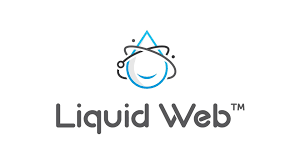While HostMy, formerly Host My Calls, positions itself as a leading cloud-based communication solution, including VoIP phone service (Hosted Call Service), we will provide you with The Ultimate Guide To Hosted Call Service to power your lead generation and customer service experience.
In today’s fast-paced business world, every interaction counts. For many businesses, especially those with remote teams or a mobile workforce, traditional phone systems just don’t cut it anymore. Enter hosted call services: a game-changer for businesses of all sizes looking to streamline communication, improve customer experience, and boost overall efficiency.
But with a plethora of hosted call service providers out there, deciding where to “host your calls” can be overwhelming. This comprehensive Host My Calls Reviews will equip you with everything you need to know:
What is Hosted Call Service?

Think of a hosted call service as a virtual phone system in the cloud. Unlike traditional PBX systems that require on-site hardware and maintenance, hosted solutions eliminate the need for physical equipment. Your provider manages everything – from servers to software – allowing you to focus on what matters most: running your business.
Here’s how it works:
- You choose a provider: There are many options available, each with its own features and pricing plans.
- The provider assigns you a phone number (or ports your existing one): This number becomes your business’s main point of contact for calls.
- You and your team download an app or use a web interface: This is where you’ll make and receive calls, access features, and manage your account.
Benefits of Hosting Your Calls
The benefits of hosted call services are numerous:
Enhanced Mobility and Flexibility:
- Unleash Your Workforce: The beauty of hosted calls lies in their location independence. Employees can make and receive calls, access voicemail, and collaborate with colleagues from anywhere with an internet connection. This empowers remote workforces, improves work-life balance, and fosters a more adaptable business environment.
- Never Miss a Lead: With mobile apps and web interfaces, you can ensure you’re always reachable, even on the go. This eliminates the risk of missing important calls or letting leads slip through the cracks.
- Disaster Recovery and Business Continuity: Traditional phone systems can be vulnerable to power outages or natural disasters. Hosted solutions, however, are geographically redundant, meaning your calls can be rerouted seamlessly in case of an outage, minimizing disruptions and ensuring business continuity.
Boosting Customer Experience
- Professional Image: Present a polished and professional image with features like custom greetings, call forwarding to ensure calls reach the right person, and voicemail to email for prompt follow-up.
- Improved Customer Satisfaction: Reduce wait times with features like call routing and interactive voice response (IVR) systems that direct callers to the most appropriate department or information.
- Streamlined Communication: Simplify communication with features like call recording for training and quality assurance purposes, and integrated SMS messaging for quick and convenient communication with clients.
Increased Productivity and Efficiency
- Streamlined Workflow: Hosted call services offer a plethora of features designed to save you and your team valuable time. Call forwarding, voicemail transcription, and one-click call conferencing eliminate the need for manual tasks and streamline workflows.
- Enhanced Collaboration: Integrations with popular collaboration tools like Slack and Microsoft Teams allow for seamless communication and information sharing within your team.
- Data-Driven Decision Making: Gain valuable insights into call volume, duration, caller behavior, and other metrics with call analytics. This data can help you identify areas for improvement, optimize call flow, and make data-driven decisions to enhance communication effectiveness.
Cost Savings
- Eliminate Upfront Costs: Unlike traditional phone systems that require expensive hardware and software investments, hosted solutions typically have no upfront costs. You simply pay a monthly fee per user.
- Scalability Saves Money: Easily add or remove users as your business grows. This eliminates the need to overspend on unused lines or scramble for additional hardware when your team expands.
- Reduced Long-distance Costs: Many hosted call service providers offer competitive rates for international calls, allowing you to connect with clients and partners globally without breaking the bank.
Improved Scalability and Manageability
- Effortless Growth: Hosted services are designed to scale with your business. Adding new users or features is a breeze, allowing you to adapt your communication infrastructure to your evolving needs.
- Simplified Management: Your provider takes care of all the software updates, maintenance, and security concerns, freeing you to focus on running your business.
- Centralized Control: Manage your entire call system and user accounts from a user-friendly online portal. This simplifies administration and ensures everyone on your team is on the same page.
By embracing hosted call services, you’re not just “hosting your calls” – you’re investing in a comprehensive communication solution that empowers a mobile workforce, enhances customer experience, boosts productivity, and ultimately positions your business for sustainable growth.
Choosing the Right Hosted Call Service Provider

Finding the perfect match in a sea of hosted call service providers can feel daunting. But fear not! This section will delve deeper into the factors you should assess to make an informed decision.
1. Needs Assessment: The Foundation of Your Choice
Before diving into feature comparisons, take a step back and clearly define your business’s communication needs. Here are some key questions to consider:
- Call Volume: How many calls do you anticipate receiving and making daily/monthly?
- Team Size and Structure: Do you have a small, centralized team, or a geographically dispersed workforce?
- Industry Regulations: Are there any industry-specific compliance requirements your chosen service must meet (e.g., HIPAA for healthcare)?
- Existing Infrastructure: Do you have existing PBX systems or CRM software you want to integrate with the hosted service?
- Future Growth Plans: How do you envision your communication needs evolving in the next few years?
2. Feature Frenzy: Prioritizing the functionalities that Matter
Once you understand your core needs, explore the feature sets offered by various providers. Here’s a breakdown of some key features to consider, along with how they can benefit your business:
- Call Routing: How will incoming calls be directed to the most appropriate team member or department? Look for features like skills-based routing, which matches callers with agents based on their expertise.
- Auto Attendant: Greet callers professionally, even outside of business hours, with an automated system that directs them to the appropriate extension or voicemail box.
- Voicemail to Email: Never miss a message again! Configure your system to automatically convert voicemails to email, allowing you to easily review and respond to messages.
- Call Recording: Record calls for training purposes, quality assurance, or dispute resolution. Ensure your chosen provider complies with all legal regulations regarding call recording in your region.
- Collaboration Features: Look for features that allow for seamless integration with your existing communication and collaboration tools. This can include integrations with project management software, CRM platforms, or video conferencing tools.
- Mobile App: Ensure the provider offers a user-friendly mobile app that allows you and your team to make and receive calls, access voicemail, and manage features on the go.
3. Unveiling the Price Puzzle: Understanding Costs
Hosted call service pricing models can vary depending on the provider and the features you choose. Here’s a breakdown of common pricing structures:
- Per User, Per Month: This is the most common pricing model, with a fixed monthly fee per user on your account.
- Tiered Plans: Providers may offer tiered plans with varying feature sets and user limits at different price points.
- Pay-as-you-go: This option can be suitable for businesses with unpredictable call volume. However, it’s crucial to understand the per-minute rates to avoid unexpected charges.
Beyond the headline prices, consider these additional cost factors:
- Setup Fees: Some providers may charge a one-time setup fee for activating your account.
- Overage Charges: If your call volume exceeds your plan limits, you may incur additional charges.
- Contract Lengths: Be mindful of contract terms and potential early termination fees.
4. Customer Support: Your Lifeline in Case of Hiccups
Even with the most reliable service, technical issues can arise. Prompt and efficient customer support is crucial to keep your communication channels flowing smoothly. Here’s what to look for:
- 24/7 Availability: Ensure the provider offers around-the-clock customer support, especially if you operate in multiple time zones.
- Multiple Support Channels: Look for providers offering support via phone, email, live chat, or even an online knowledge base with troubleshooting guides.
- Customer Reviews: Read online reviews and testimonials to gauge other users’ experiences with the provider’s customer support.
5. Taking the Leap: Free Trials and Demos
Many hosted call service providers offer free trials or demo periods. This is a fantastic opportunity to test drive the service, familiarize yourself with the interface, and assess if it meets your needs.
Pro Tip: During your trial, make sure to test out all the features that are important to you, including call routing, voicemail functionality, and mobile app usability.
By following these steps and conducting thorough research, you can confidently choose a hosted call service provider that empowers your business communication and propels you towards success. Remember, the ideal provider should be a seamless extension of your team, not a source of frustration.
Top Tips for Getting Started with Hosted Call Service

Transitioning to a hosted call service can be a smooth and rewarding experience. Here’s a deeper dive into the key tips we mentioned earlier, along with additional insights to ensure a successful implementation:
1. Identify Your Needs:
- Go beyond basic call functionality: Consider your specific communication workflows. Do you need features like call forwarding for a mobile workforce, video conferencing for remote teams, or call recording for training purposes?
- Take stock of user volume: Estimate the average number of calls you handle daily/monthly. This will help you determine the appropriate plan size and avoid overpaying for unused features.
- Integration is key: If you rely on a CRM, project management software, or marketing automation platform, ensure the hosted call service integrates seamlessly to avoid data silos and streamline workflows.
2. Shop Around and Compare Wisely:
- Don’t be afraid to negotiate: Pricing for hosted call services can be flexible, especially for larger businesses. Get quotes from multiple providers and leverage them to negotiate the best possible deal.
- Look beyond price: While cost is important, prioritize features, customer support quality, and the provider’s reputation for reliability. The cheapest option might not be the most suitable for your needs.
- Read user reviews and testimonials: Independent user reviews can offer valuable insights into the real-world experience with a particular provider. Check platforms like G2 Crowd, Capterra, or TrustRadius.
3. Read the Fine Print:
- Understand contract terms: Pay close attention to contract lengths, early termination fees, and any limitations on features or usage included in different plans.
- Beware of hidden fees: Some providers might charge extra for features you consider essential, like call recording or international calling. Ensure all anticipated costs are factored into your decision.
- Data usage considerations: If your team relies heavily on video conferencing or file sharing via the hosted call service, check data usage limits and potential overage charges.
4. Train Your Team (and Yourself):
- Embrace the learning curve: While most hosted call services offer user-friendly interfaces, some features might require initial training. Invest time in familiarizing yourself with the platform before rolling it out to your team.
- Prepare comprehensive training materials: Create user guides, FAQs, or video tutorials to equip your team with the knowledge and skills required to maximize the new platform’s capabilities.
- Schedule ongoing training sessions: As new features are released or processes evolve, conduct training refreshers to ensure everyone stays up-to-date and utilizes the platform effectively.
5. Continuously Evaluate and Adapt:
- Monitor usage patterns: Most hosted call services provide detailed usage reports. Analyze these reports to identify areas for improvement, such as optimizing call routing or adjusting call forwarding rules.
- Gather team feedback: Solicit feedback from your team regarding their experience with the new platform. This feedback can highlight areas where additional training might be needed or identify features that are underutilized.
- Stay informed about industry trends: The hosted call service landscape is constantly evolving. Keep yourself updated on emerging features, security best practices, and potential new providers who might offer a better fit as your business grows.
By following these comprehensive tips and diving deeper into your specific needs, you can ensure a smooth transition to a hosted call service solution that empowers your team to communicate effectively, collaborate seamlessly, and ultimately drive business success.
Popular Hosted Call Service Providers

While this guide can’t endorse specific providers due to the ever-evolving market and regional variations, let’s delve deeper into some of the leading players to give you a better sense of the options available:
1. RingCentral:
A popular choice for businesses of all sizes, RingCentral offers a comprehensive suite of features that goes beyond basic call routing and voicemail. Think video conferencing, call analytics, and integrations with popular CRM tools like Salesforce and Zendesk. They’re known for their user-friendly interface and reliable service, making them a strong contender for businesses seeking a well-rounded solution.
2. Nextiva:
Nextiva caters well to small and medium-sized businesses (SMBs) focusing on affordability and ease of use. They offer a wide range of calling features that go beyond the basics, including auto attendants that greet callers professionally, voicemail-to-text for convenient message retrieval, and international calling options to connect with clients and partners across the globe.
3. 8×8:
8×8 positions itself as a strong solution for enterprises seeking a feature-rich, scalable platform. They offer robust call center functionality, including skills-based routing that ensures calls are directed to the most qualified agents, advanced analytics that provide valuable insights into call performance, and integrations with various business applications to streamline workflows and boost efficiency.
4. Ooma:
A budget-friendly option for small businesses and startups, Ooma provides basic call routing, voicemail, and conferencing features at a competitive price point. It’s a good option for businesses looking for a simple and affordable solution to get started with hosted call services. However, keep in mind that Ooma’s feature set may not be as comprehensive as some of the other providers on this list.
5. Mitel:
Mitel caters to larger organizations with complex communication needs. They offer a robust suite of features, including on-premise and cloud-based deployment options, making them ideal for businesses with hybrid work environments where employees may be working from the office, home, or a combination of both. This flexibility ensures seamless communication regardless of location.
6. Grasshopper:
Grasshopper is a popular choice for solopreneurs and freelancers seeking a virtual phone system with a focus on mobility. Their app-based solution allows users to make and receive business calls from their smartphones, transforming any mobile device into a professional business line. This makes Grasshopper a great option for individuals who are constantly on the go.
Remember: This is not an exhaustive list, and the “best” provider depends on your specific needs and budget. It’s crucial to conduct your own research considering factors like:
- Your location: Pricing and feature availability can vary depending on your region. Choose a provider with a strong presence in your area to ensure optimal call quality and responsive customer support.
- Industry regulations: If your business operates in a highly regulated industry (e.g., healthcare), ensure the provider complies with relevant data security and privacy regulations, such as HIPAA in the United States.
- Existing integrations: Consider how well the service integrates with the business tools you already use, such as your CRM or project management software. Seamless integration can streamline workflows and save you time.
Beyond the Big Names: Exploring Niche Providers
The hosted call service landscape extends beyond established players. Several niche providers cater to specific industries or functionalities. Here are a few examples to illustrate the range of options available:
7. CloudTalk:
Ideal for contact centers, CloudTalk offers advanced call center features like skills-based routing that ensures calls are directed to agents with the most relevant expertise, call recording with transcription for easy reference and training purposes, and real-time performance dashboards that provide valuable insights into agent productivity and customer satisfaction.
Designed specifically for sales teams, Aircall integrates seamlessly with popular CRM systems like Salesforce and HubSpot, allowing for streamlined call logging and contact management. This integration ensures that all call details and customer interactions are automatically captured within your CRM system, providing a centralized view of your sales pipeline.
9. GoTo Connect:
GoTo Connect positions itself as a unified communications solution, offering features like video conferencing, instant messaging, and screen sharing alongside traditional call center functionalities. This comprehensive approach can be beneficial for businesses that need a single platform to manage all their communication needs, fostering collaboration and streamlining workflows.
Beyond the Basics: Advanced Features to Consider
While core functionalities like call routing and voicemail are essential for any hosted call service, many providers offer a range of advanced features that can truly supercharge your communication strategy. Here’s a deeper dive into some features worth considering:
1. Call Analytics: Unleash the Power of Data
Imagine having access to a treasure trove of information about your customer interactions. Call analytics provide just that. This feature goes beyond simply tracking the number of calls received. It delves into details like:
- Average Call Duration: Identify opportunities to streamline calls by pinpointing areas where conversations tend to drag on.
- Peak Call Times: Gain insights into your busiest calling periods and schedule staffing accordingly.
- Missed Call Rates: Analyze missed calls to see if adjustments are needed to voicemail greetings, call routing, or staffing levels.
- Caller Location: Understand your geographic reach and tailor marketing efforts accordingly.
- Call Recording Analysis: Use sentiment analysis tools to identify trends in customer emotions and satisfaction levels.
By leveraging call analytics, you can gain valuable insights to:
- Improve customer service: Identify areas where wait times are too long or callers are being routed incorrectly.
- Boost sales and marketing efforts: Tailor your campaigns based on caller demographics and interests.
- Optimize staffing: Ensure you have the right number of staff available during peak call times.
2. Interactive Voice Response (IVR): Empower Self-Service
Ever get stuck navigating a complex phone menu? IVR (Interactive Voice Response) can eliminate that frustration for your callers. It’s essentially a virtual receptionist that greets callers, collects informations, and directs them to the most relevant department or information.
Here’s how IVR can benefit your business:
- Reduced Call Wait Times: By allowing callers to self-service for simple inquiries, IVR frees up your agents to handle more complex issues.
- Improved Customer Satisfaction: Empower callers to find the information they need quickly and efficiently.
- Reduced Operating Costs: IVR can handle a significant volume of calls, lowering the need for additional staff.
3. Call Recording: A Multifaceted Tool
Call recording goes beyond simply capturing conversations. It offers a wealth of benefits:
- Training & Quality Assurance: Use recordings to train new staff and identify areas where existing agents can improve their communication skills.
- Dispute Resolution: Recordings provide a clear record of interactions, helping to resolve customer disputes fairly.
- Compliance: For businesses in regulated industries, call recordings may be essential for compliance purposes.
4. Call Center Features: Go Beyond the Basics
If you manage a high volume of calls, consider features specifically designed for call centers:
- Automatic Call Distribution (ACD): Distribute incoming calls evenly among available agents, ensuring fair workload distribution and shorter wait times.
- Skills-Based Routing: Route calls to agents with the most relevant skills and experience to handle the caller’s specific needs.
- Real-time Call Monitoring: Supervisors can monitor ongoing calls in real-time and intervene if needed to ensure customer satisfaction.
5. Integrations: A Seamless Ecosystem
The power of a hosted call service is further amplified when it integrates seamlessly with the tools you already use. Here are some key integrations to consider:
- CRM (Customer Relationship Management): Automatically populate customer information from your CRM when a call comes in, providing agents with a complete customer history.
- Helpdesk Software: Integrate your call center with your helpdesk software to streamline ticketing and issue resolution.
- Marketing Automation Tools: Track call data to identify leads and nurture them through the sales funnel.
Optimizing Your Communication Strategy with Advanced Features
By strategically implementing these advanced features, you can elevate your communication from basic functionality to a powerful tool that drives business growth. Remember, the key is to identify the features that align best with your specific needs and goals. Don’t be afraid to experiment and explore – the possibilities are vast.
Host My Calls Reviews

Host My Calls carves out a strong position in the VoIP market, particularly for businesses seeking a feature-rich and affordable solution. But before you jump in, here’s a more nuanced breakdown to help you decide if Host My Calls is the perfect fit:
Why Host My Calls Could Be Your Ideal Choice:
Scalability for Growth: Host My Calls caters to businesses of all sizes. Whether you’re a startup with a handful of employees or a growing company with expanding communication needs, Host My Calls’ scalable plans can adapt alongside you. Their tiered structure allows you to choose a plan that matches your current requirements, with the option to upgrade seamlessly as your needs evolve.
Remote-Friendly Features: In today’s hybrid work environment, features like video conferencing and mobile apps are essential. Host My Calls delivers on both fronts, enabling seamless collaboration between remote and in-office teams. The mobile app allows you to take your business calls on the go, ensuring you never miss a beat, while video conferencing bridges geographical distances and fosters face-to-face interaction.
Integration Powerhouse: Streamline workflows and boost productivity by integrating Host My Calls with your existing CRM platform. This eliminates the need for manual data entry and ensures all your customer interactions are centralized in one location. Popular integrations include Salesforce, Zendesk, and HubSpot, giving you the flexibility to choose the platform that best suits your business.
Cost-Effectiveness: When evaluating a VoIP solution, value for money is paramount. Host My Calls strikes a good balance between affordability and features. Compared to competitors, Host My Calls’ pricing is generally considered fair and competitive, offering a feature-rich suite at an attractive price point.
When Host My Calls Might Not Be the Best Fit:
- 24/7 Support Needs: If your business operates across multiple time zones or demands round-the-clock support, Host My Calls’ limited support hours might be a drawback. While they offer various channels like phone, email, and chat during business hours, the lack of 24/7 availability could be a concern for some businesses.
- Highly Complex Requirements: While Host My Calls offers a comprehensive feature set, it might not cater to the most intricate communication needs of very large enterprises. If your business has highly specialized requirements or a massive user base, it might be worth exploring solutions designed specifically for handling large-scale communication volumes.
- Advanced Customization Needs: For businesses seeking a high degree of customization, Host My Calls platform might have limitations. If extensive control over features and configurations is a priority, investigate solutions offering more granular customization options.
Positive Mentions from Industry Sources:
HostMy, formerly Host My Calls does get recognized by industry publications. They’ve been listed as a Top VoIP Solutions Provider by Enterprise Networking, potentially indicating a level of industry acceptance [Enterprise Networking: HostMy(Calls) Recognized as Top VoIP Solutions Company hostmycalls.com].
Similarly, The Silicon Review included them in their list of innovative companies, highlighting their customer focus and expertise [Since 1946: Host My Calls Continues to Provide Best-in-Class Hosted PBX, VoIP, and Unified Communication Services with Outstanding Support at an Affordable Price – The Silicon Review thesiliconreview.com].
Ultimately, the decision of whether Host My Calls is right for you hinges on your specific business needs and priorities. By carefully considering the factors outlined above, you can make an informed choice that empowers your team’s communication and fuels business growth.
Exploring Host My Calls Alternatives
While Host My Calls offers a compelling solution, the VoIP landscape is teeming with options. Here’s a quick glimpse at some of Host My Calls’ key competitors:
- RingCentral: A popular choice known for its user-friendly interface, robust features, and integrations with various business tools.
- Nextiva: Another industry leader, Nextiva offers a comprehensive suite that includes VoIP, video conferencing, and business messaging.
- Dialpad: A cloud-based solution known for its ease of use, scalability, and integrations with popular productivity apps like Google Workspace and Microsoft 365.
Taking the time to research these alternatives alongside Host My Calls will provide a well-rounded perspective and ensure you select the VoIP solution best tailored to your unique needs.pen_sparktunesharemore_vert
Security Considerations for Hosted Call Services
In the digital age, where data breaches are a constant threat, security should be a top priority when choosing a hosted call service provider. Here’s a closer look at the crucial security features to consider:
Encryption Protocols:
- In-transit Encryption: Look for providers that utilize Transport Layer Security (TLS) to encrypt data while it’s being transmitted between your devices and the provider’s servers. This safeguards your calls and messages from being intercepted by unauthorized parties.
- Data at Rest Encryption: Data shouldn’t just be secure while traveling; it also needs protection when stored on the provider’s servers. Ensure your chosen service encrypts data at rest using robust algorithms like AES-256.
Authentication Measures:
- Multi-factor Authentication (MFA): MFA adds an extra layer of security beyond just usernames and passwords. This can involve one-time codes sent via text message, fingerprint recognition, or security tokens. Opt for a provider that enforces MFA for all user accounts.
- Single Sign-On (SSO): While convenient, using the same login credentials for multiple applications can be risky. If possible, choose a hosted call service that integrates with your existing SSO system, allowing users to access multiple platforms with a single login.
Compliance and Regulatory Requirements:
- Industry Standards: Depending on your industry, specific data security regulations may apply. For instance, healthcare providers must adhere to HIPAA (Health Insurance Portability and Accountability Act). Ensure your chosen service is compliant with all relevant regulations.
- Regular Security Audits: Reputable providers conduct regular security audits to identify and address vulnerabilities in their systems. Look for providers that are transparent about their security practices and willing to share audit reports upon request.
Additional Security Features:
- User Access Controls: Implement granular user access controls to restrict access to sensitive information and functionalities based on individual roles within your organization.
- Data Backup and Disaster Recovery: In the event of a system outage or cyberattack, data backup and disaster recovery plans are crucial for minimizing downtime and ensuring business continuity. Choose a provider with robust backup and recovery procedures.
- Security Awareness Training: Even with the most advanced security measures, human error can be a significant security risk. Invest in security awareness training for your employees to educate them on best practices for protecting sensitive information and identifying phishing attempts.
Staying Vigilant:
Remember, cybersecurity is an ongoing process. Don’t become complacent once you’ve chosen a provider. Stay informed about emerging security threats and work collaboratively with your chosen hosted call service provider to maintain a robust security posture.
By prioritizing these security considerations, you can ensure your hosted call service empowers your business communication without compromising data privacy and confidentiality.
The Future of Hosted Call Services

The world of hosted call services is constantly evolving, driven by advancements in technology and the ever-changing needs of businesses. Here’s a deeper dive into some of the most exciting trends shaping the future of this landscape:
Artificial Intelligence (AI): AI is poised to revolutionize the way businesses handle calls. Imagine virtual receptionists that can intelligently greet callers, direct them to the appropriate department, or even answer basic questions.
AI-powered call transcription can eliminate the need for manual note-taking, saving time and improving accuracy. Furthermore, sentiment analysis can detect a caller’s emotional tone, allowing agents to tailor their approach and de-escalate potentially volatile situations.
Integration with Collaboration Tools: The future of communication lies in seamless integration. Hosted call services will become even more intertwined with popular collaboration platforms like Slack and Microsoft Teams.
This will allow users to make and receive calls, share documents, and collaborate in real-time, all within a single interface. This fosters a more streamlined workflow and eliminates the need to toggle between multiple applications.
Advanced Analytics: Data is king, and hosted call services are poised to provide businesses with deeper, more actionable insights than ever before.
Advanced analytics tools will go beyond basic call metrics to provide insights into customer behavior, identify peak call times, and track agent performance. This data can be used to optimize call routing strategies, improve agent training, and ultimately, deliver a superior customer experience.
Focus on Security and Privacy: As reliance on cloud-based communication solutions grows, security and privacy will remain paramount. Expect to see hosted call service providers prioritize robust security measures, including advanced encryption protocols, multi-factor authentication, and compliance with the latest industry regulations.
Additionally, features like data anonymization and user access controls will empower businesses to maintain control over their sensitive information.
The Rise of Unified Communications (UCaaS): The future of business communication is not just about calls. Hosted call services are evolving into Unified Communications as a Service (UCaaS) solutions that integrate voice calls, video conferencing, instant messaging, and other communication channels into a single platform.
This convergence provides businesses with a one-stop shop for all their communication needs, fostering collaboration, improving productivity, and enhancing the overall customer experience.
The Bottom Line: Host My Calls Reviews
The future of hosted call services is brimming with exciting possibilities. By staying informed about these emerging trends and embracing innovative solutions, businesses can ensure they are well-equipped to handle the ever-changing communication landscape.
Choosing a provider that prioritizes innovation and invests in cutting-edge technology will ensure your business has the tools it needs to thrive in the years to come.
In today’s competitive landscape, effective communication is the cornerstone of business success. Hosted call services empower businesses of all sizes to take their communication to the next level, offering scalability, flexibility, and a robust suite of features.
By carefully considering your needs and leveraging the valuable insights in this guide, you can confidently choose a hosted call service that propels your business forward. Remember, it’s not just about “hosting your calls” – it’s about investing in a powerful communication solution that fosters stronger relationships, boosts productivity, and ultimately drives business growth.
Discover more from Digital Wealth Guru
Subscribe to get the latest posts sent to your email.









Comments